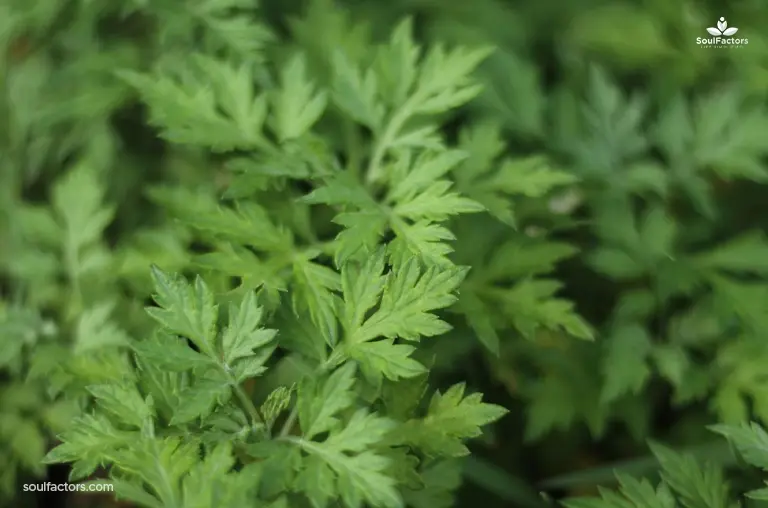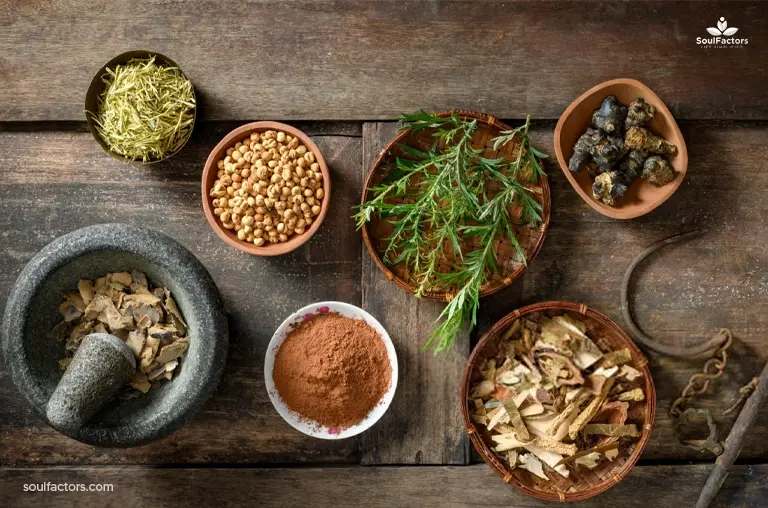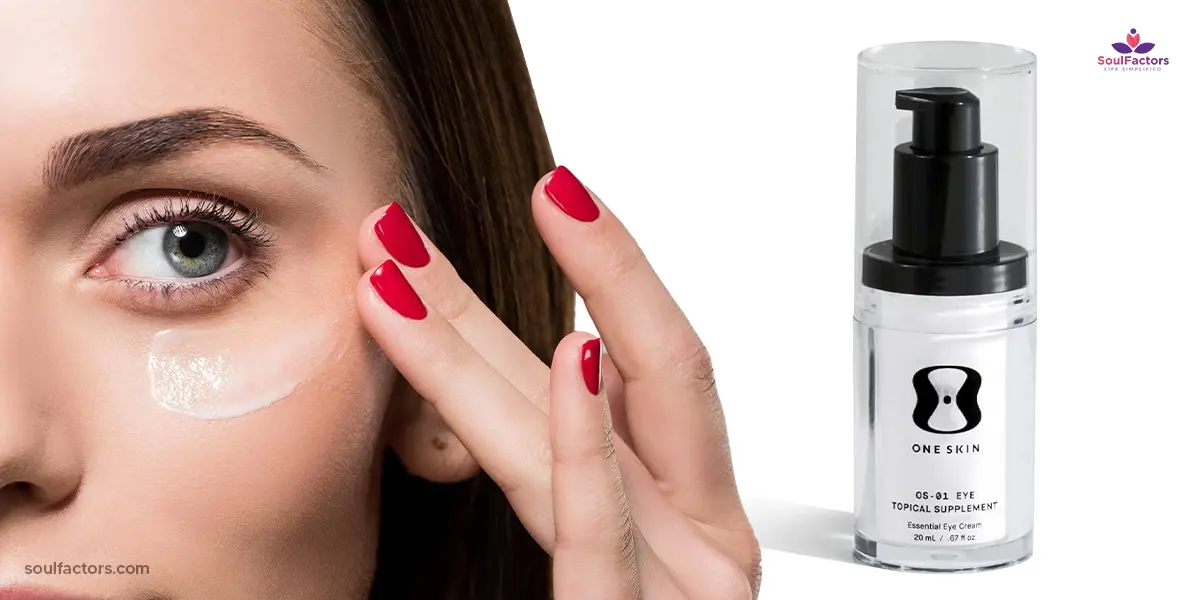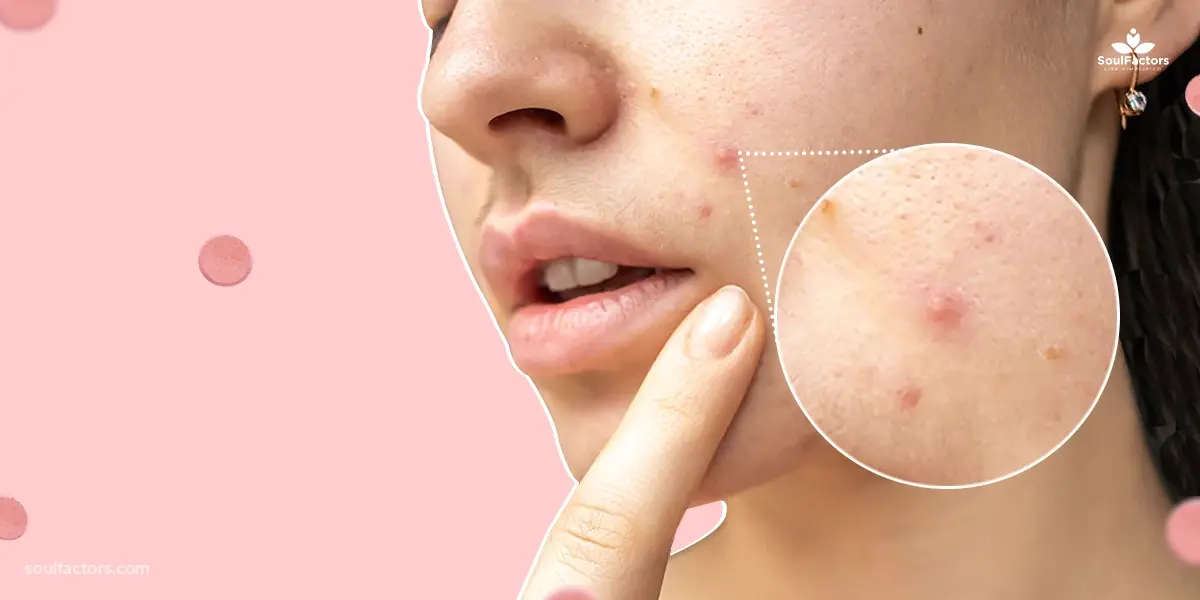Mugwort Skin Benefits: Why Dermatologists Love Mugwort?
Does this herb work as it claims? Here is what you should know about mugwort benefits, usage, risks, side effects, and more.
On Apr 8, 2023 – 10 minutes read

Mugwort, a herbaceous plant belonging to the genus Artemisia, is a versatile plant with a rich history of use in traditional medicine, culinary arts, and spiritual practices. Artemisia vulgaris is the most common species of Mugwort, and it is native to Europe, Asia, and North Africa. It has now spread to other parts of the world, including North America. Traditional medicine has used mugworts to treat digestive issues, menstrual cramps, and insomnia for centuries. It flavors fish, meat, and soups. Mugwort Skin Benefits brought so many changes among people’s concerns regarding their skin.
Mugwort’s uses extend beyond medicinal and culinary purposes. It is a popular plant in traditional rituals and ceremonies. In Native American practices, Mugwort is used in smudging (a process that involves burning herbs to purify spaces). In Chinese medicine, it is believed that Mugwort promotes blood circulation and reduces pain.
Overall, Mugwort is a remarkable plant with a multitude of uses. From its medicinal properties to its culinary applications and spiritual benefits- Mugwort has become an essential part of many cultures worldwide. It’s versatility and cultural significance make it a fascinating plant to explore and learn about.
Mugwort Skin Benefits: When Was Mugwort Discovered
It is difficult to pinpoint by whom and when Mugwort was “discovered” since it has been used for centuries by various cultures for medicinal and culinary purposes. The plant is native to Europe, Asia, and North Africa, so it has likely been known and used by people in those regions for thousands of years. Indigenous peoples have also used mugwort for traditional practices such as smudging in other parts of the world, including North America. While we may not know the exact moment or individual who discovered Mugwort, its widespread use, and cultural significance indicate that it has been valued for its various properties for a long time.

Mugwort Skin Benefits: Mugwort’s Use In Traditional Medicine
Mugwort’s use in traditional medicine is traced back thousands of years. In ancient Greece, physicians like Hippocrates and Dioscorides prescribed Mugwort to treat numerous health issues including menstrual cramps, digestive problems, and nervous disorders. In Traditional Chinese Medicine, Mugwort has been used since the Han Dynasty (206 BC – 220 AD) to promote circulation, relieve pain, and improve digestion.
Mugwort has also been an important part of traditional medicine in other parts of the world. In Korea, it is used as an ingredient in the popular traditional snack called, “mugwort rice cake.” Native American tribes have long used Mugwort in their medicinal practices, and it was also used in medieval Europe to ward off evil spirits and as a protective charm.
Recent research suggests that Mugwort may have anti-inflammatory and antioxidant properties. It is also studied for its potential to treat neurological disorders, such as Alzheimer’s disease. Despite modern advances in medicine, Mugwort continues to be used in traditional practices worldwide.
How To Identify A Mugwort?
Mugwort is a herbaceous plant that can grow up to 6 feet tall. It has multiple branches and a woody stem, and its leaves are dark green and deeply lobed. The leaves are slightly hairy and have a bitter aroma. Mugwort produces small flowers that are yellowish-green in color and bloom from July to October. The flowers are arranged in clusters at the top of the plant and have a somewhat ragged appearance. When Mugwort is dried, its leaves and flowers have a silvery-green color and a distinct, pungent aroma. Overall, Mugwort is a hardy plant that is easily recognizable by its distinctive leaves and strong scent.
Common Uses Of Mugwort & Mugwort Skin Benefits
Mugwort is used for various purposes in different countries around the world. In Korea, Mugwort is used as a culinary herb, and its leaves are added to rice cakes and other dishes. In traditional Chinese medicine, Mugwort has been used to promote circulation, relieve pain,
and reduce inflammation. Recent research has found that Mugwort has anti-inflammatory and antioxidant properties, which support its traditional uses in traditional Chinese medicine. In Japan, Mugwort is used to make moxa, a traditional therapy in which dried Mugwort leaves are burned near the skin to promote healing.

In Europe, Mugwort has been used for centuries in traditional medicine to treat digestive issues, menstrual cramps, and insomnia. Today, it is still used as a natural remedy for these conditions, and research has found that it may have anti-inflammatory and anti-spasmodic properties. In North America, Native American tribes used Mugwort in their medicinal practices, and it was also used in spiritual and ceremonial rituals. Overall, Mugwort has diverse uses across different cultures, and its traditional uses are supported by modern scientific research.
Mugwort Skin Benefits: Common Names Of Mugwort
Mugworts are known by several common names around the world, including:
- Common mugwort
- Felon herb
- St. John’s plant
- Sailor’s tobacco
- Wild wormwood
- Chrysanthemum weed
- Old uncle henry
- Naughty man
- Green ginger
- Artemis herb
Mugwort Skin Benefits
Anti-Inflammatory Benefits
Mugwort has numerous benefits. Recent research has shown that Mugwort contains several compounds with anti-inflammatory effects, including flavonoids, terpenoids, and coumarins. These compounds inhibit the production of pro-inflammatory cytokines and enzymes, which are responsible for causing inflammation in the body. In addition, Mugwort helps to decrease the activity of NF-kappaB, a protein complex that plays a central role in inflammation and immune response.
Studies have also proposed that Mugword may treat inflammatory skin conditions, such as atopic dermatitis and psoriasis. One study found that topical application of Mugwort extract reduced inflammation and improved skin barrier function in mice with atopic dermatitis.

Mugwort Skin Benefits: Anti-Bacterial Properties
Many studies have shown that Mugwort skin benefits have several compounds with antibacterial effects, including cineole, camphor, and thujone. These compounds have been found to inhibit the growth of several types of bacteria, including Staphylococcus aureus(1), known to cause skin infections. One study found that an extract of Mugwort was effective against multiple drug-resistant strains of Staphylococcus aureus.
In addition, Mugwort has been found to have antifungal properties, which may make it useful in treating fungal infections such as athlete’s foot and candidiasis. One study found that an extract of Mugwort was effective in inhibiting the growth of Candida albicans, a common fungal pathogen.
Mugwort Skin Benefits: Anti-Aging Effects
Mugwort has anti-aging properties that may help reduce the signs of aging and improve the overall appearance of the skin. Research has shown that Mugwort contains several compounds with antioxidant effects, including flavonoids and phenolic acids.
These compounds scavenge free radicals, which are known to cause oxidative damage to cells and contribute to the aging process. In addition, Mugwort also helps increase collagen production, which is crucial for maintaining the elasticity and firmness of the skin.
Studies have also suggested that Mugwort may have the potential to treat hyperpigmentation, a common sign of aging. One study found that an extract of Mugwort was effective in inhibiting melanin production in skin cells.
Mugwort Skin Benefits For Natural Skincare
Topical Application
Mugwort is used in topical applications for skincare in various forms, including creams, lotions, and masks. One popular method is to create a Mugwort-infused oil, which can be used as a moisturizer or applied directly to problem areas.
To create Mugwort oil, take dried Mugwort leaves infused in a carrier oil such as jojoba or almond oil. The oil can then be applied to the skin or used as a base for other skincare products. Mugwort can be paired with other natural ingredients, such as honey and aloe vera, to create a hydrating and nourishing face mask. One study found that Mugwort skin benefits with honey face masks improved skin hydration and reduced the appearance of fine lines and wrinkles.
Overall, incorporating Mugwort into your skincare routine can provide a natural and effective way to nourish and protect the skin. It is important to note that while Mugwort is generally safe for topical use, individuals with sensitive skin may experience irritation and should do a patch test before using any new skincare products.
Oral Consumption
While Mugwort is primarily used in topical skincare applications, it can also be consumed orally in the form of supplements or tea. Oral consumption of Mugwort has been found to have potential benefits for the skin due to its anti-inflammatory and antioxidant properties.
Mugwort supplements or teas can be found in health food stores and online retailers. It is important to follow the recommended dosage instructions and consult a healthcare professional before adding new supplements to your diet.
Mugwort skin benefits could be suitable for some people but its not necessary that everyone will get the same benefit.
However, it is important to note that Mugwort can cause allergic reactions in some individuals, particularly those with allergies to plants in the Asteraceae family. In addition, pregnant women should avoid consuming Mugwort due to its potential to stimulate uterine contractions.
Mugwort Skin Benefits & Allergies
Mugwort is an herbaceous plant known for its medicinal properties but it can also cause allergic reactions. Some of the most common precautions are as follows.
- Mugwort should be avoided by individuals with allergies to plants in the Asteraceae family or sensitive skin, as it may cause allergic reactions and skin irritation.
- Pregnant women and breastfeeding mothers should avoid consuming Mugwort due to its potential to stimulate uterine contractions and its effects on lactation.
- Mugwort can interact with certain medications, including blood thinners and sedatives, so it is important to consult with a healthcare professional before consuming Mugwort.
- Mugwort should not be used as a replacement for medical treatment without consulting with a healthcare professional.
- Mugwort should be sourced from reputable suppliers to ensure it is free from contaminants and grown safely and sustainably.
- Overconsumption of Mugwort can cause symptoms such as vomiting, diarrhea, and dizziness, so it is important to follow recommended dosage instructions.
- Individuals with a history of seizures or epilepsy should avoid using Mugwort as it may lower the seizure threshold.
Side Effects Of Mugwort
Mugwort Skin Benefits could be beneficial but not for everyone.
While Mugwort is generally considered safe when used appropriately, it is important to be aware of potential side effects before using it.
- Mugwort may cause allergic reactions in some individuals, particularly those with allergies to plants in the Asteraceae family.
- Skin irritation and contact dermatitis may occur with the topical use of Mugwort.
- Oral consumption of Mugwort may cause gastrointestinal upset, including nausea, vomiting, and diarrhea.
- Overconsumption of Mugwort may cause symptoms such as dizziness and headache.
- Blood thinners and sedatives may interact with mugwort.
- Pregnant women and breastfeeding mothers should avoid using Mugwort due to its potential effects on uterine contractions and lactation.
- Individuals with a history of seizures or epilepsy should avoid using Mugwort as it may lower the seizure threshold.
Moreover, Anaphylaxis is a severe allergic reaction that can cause life-threatening symptoms such as shock and death. People allergic to celery, birch, or carrot should exercise caution when using Mugwort because it is associated with “celery-carrot-mugwort-spice syndrome.” Although this allergy is usually mild, in rare cases, it can lead to anaphylaxis. Some studies show the Mugwort skin benefits that worked some show the allergies and how the allergies are formed in some people.
A 2008 study conducted in the Netherlands found that 87% of people with celery allergies(2) also had Mugwort allergies(3), as did 52% of people with birch allergies and 26% of people with caraway allergies. Therefore, individuals with known allergies to these plants should be aware of the potential for Mugwort to cause an allergic reaction and take appropriate precautions.
Conclusion On Mugwort Skin Benefits
Although mugwort has been used to promote various health benefits, there is admittedly not much research to support its use. It is commonly available in various forms, including supplements, extracts, and essential oils. Articles about Mugwort Skin Benefits show the way how it was beneficial to some people, However, people with allergies to ragweed, celery, carrot, or birch should exercise caution when using mugwort, as it may cause an allergic reaction.
It is important to note that the safety of mugwort use during pregnancy and breastfeeding has not been established, and it should not be used in children. As with any herbal supplement or remedy, it is recommended to consult with a healthcare professional before use, especially if you have any underlying health conditions or are taking medication.

Subscribe to Newsletter
Elevate your routine, stay on trend, and embrace a personalized beauty journey with our curated insights.





Write a Comment